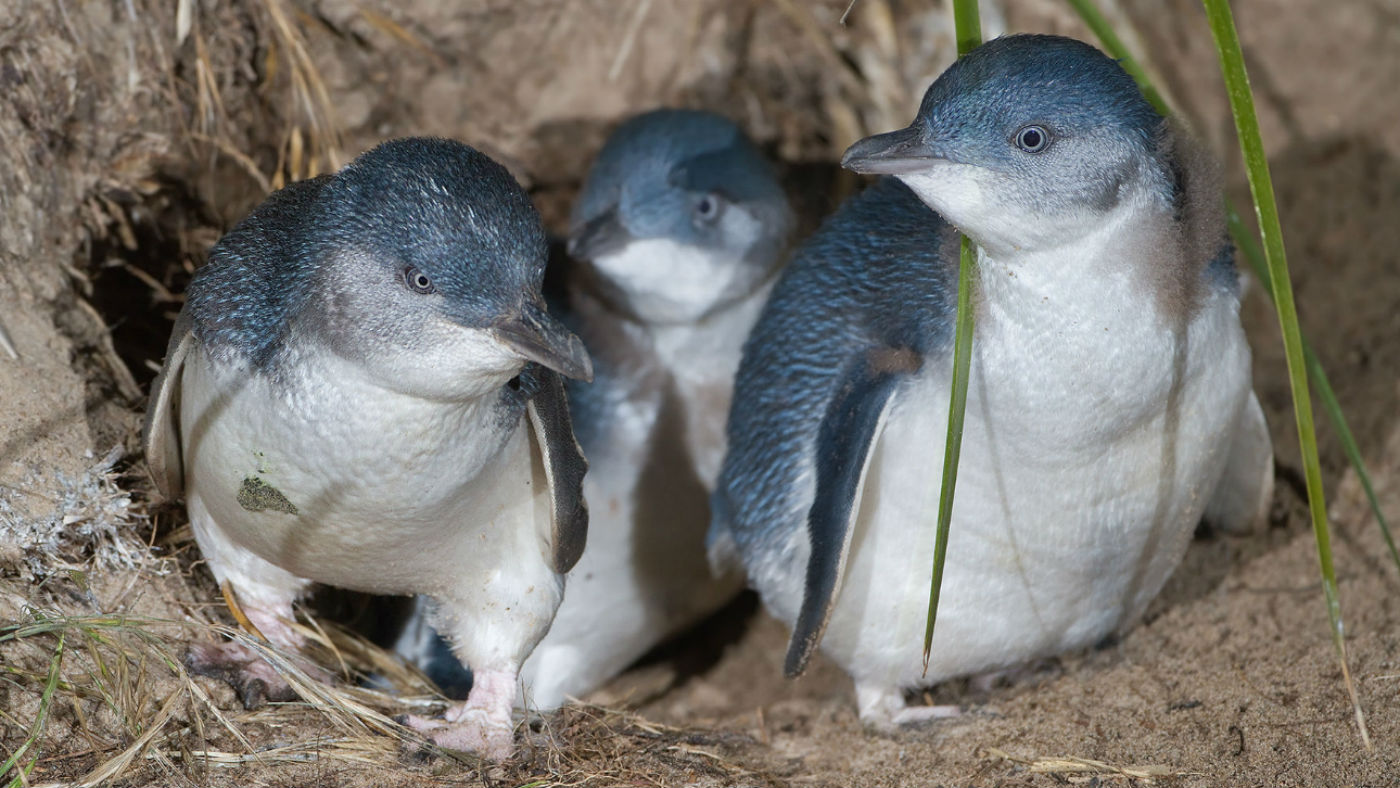Man who bludgeoned six penguins walks free from court
Tasmanian Joshua Leigh Jeffrey will serve 98 hours of community service for New Year’s Day attack

A free daily email with the biggest news stories of the day – and the best features from TheWeek.com
You are now subscribed
Your newsletter sign-up was successful
An Australian man who bludgeoned six penguins to death has had his punishment increased, but will not spend time behind bars.
Joshua Leigh Jeffrey, 20, must carry out 98 hours of community service - double the amount he was initially handed in June - as well as a two-month prison sentence, suspended on condition that he does not reoffend within the next 12 months.
The harsher punishment was handed down after a court upheld an appeal by the office of the Director of Public Prosecutions, which described Jeffrey’s initial sentence as “manifestly inadequate”.
The Week
Escape your echo chamber. Get the facts behind the news, plus analysis from multiple perspectives.

Sign up for The Week's Free Newsletters
From our morning news briefing to a weekly Good News Newsletter, get the best of The Week delivered directly to your inbox.
From our morning news briefing to a weekly Good News Newsletter, get the best of The Week delivered directly to your inbox.
Jeffrey and another man used sticks to attack a group of fairy penguins at Sulphur Creek in north-west Tasmania on New Year’s Day 2016.
The seabirds, native to southern Australia and New Zealand, are the smallest species of penguin.
Nine fairy penguins were subsequently found dead at the scene, although the cause of death of three of them could not be established, the ABC reports.
In April, Jeffrey was found guilty of aggravated cruelty to animal. Two months later, he was sentenced to 49 hours of community service and ordered to pay court costs of AUS$82.15 (£44.50) - a sentence which animal rights activists dismissed it as a “slap on the wrist”.
A free daily email with the biggest news stories of the day – and the best features from TheWeek.com
At the time, Dr Eric Woehler from Birds Tasmania issued a statement expressing the organisation’s “extreme disappointment”.
Woehler said that the fairy penguin colony at Sulphur Creek would take “years to recover” from the attack and that the court’s leniency was “no deterrent whatsoever” to future attacks.
“The current penalties are clearly failing to prevent the cruel and senseless killing of wildlife in Tasmania,” he said, adding: “There is no deterrence in this sentence.”
The case also provoked uproar among the press and public, prompting a debate as to whether current legislation needed to be updated to recognise contemporary attitudes towards abuse of animals.
“Animal cruelty has become a much more serious issue in the minds of the public in recent decades, and the laws have not kept up with that changing attitude,” regional newspaper The Advocate said in a June editorial, urging mandatory prison sentences for extreme acts of animal cruelty.
RSPCA Tasmania executive officer Andrew Byrne today told The Advocate that the organisation was “pleased” with the harsher penalty.
“Hopefully this will send a strong message to the community that animal cruelty will not be tolerated on any level,” he added.
-
 The ‘ravenous’ demand for Cornish minerals
The ‘ravenous’ demand for Cornish mineralsUnder the Radar Growing need for critical minerals to power tech has intensified ‘appetite’ for lithium, which could be a ‘huge boon’ for local economy
-
 Why are election experts taking Trump’s midterm threats seriously?
Why are election experts taking Trump’s midterm threats seriously?IN THE SPOTLIGHT As the president muses about polling place deployments and a centralized electoral system aimed at one-party control, lawmakers are taking this administration at its word
-
 ‘Restaurateurs have become millionaires’
‘Restaurateurs have become millionaires’Instant Opinion Opinion, comment and editorials of the day
-
 Epstein files topple law CEO, roil UK government
Epstein files topple law CEO, roil UK governmentSpeed Read Peter Mandelson, Britain’s former ambassador to the US, is caught up in the scandal
-
 Iran and US prepare to meet after skirmishes
Iran and US prepare to meet after skirmishesSpeed Read The incident comes amid heightened tensions in the Middle East
-
 Israel retrieves final hostage’s body from Gaza
Israel retrieves final hostage’s body from GazaSpeed Read The 24-year-old police officer was killed during the initial Hamas attack
-
 China’s Xi targets top general in growing purge
China’s Xi targets top general in growing purgeSpeed Read Zhang Youxia is being investigated over ‘grave violations’ of the law
-
 Panama and Canada are negotiating over a crucial copper mine
Panama and Canada are negotiating over a crucial copper mineIn the Spotlight Panama is set to make a final decision on the mine this summer
-
 Why Greenland’s natural resources are nearly impossible to mine
Why Greenland’s natural resources are nearly impossible to mineThe Explainer The country’s natural landscape makes the task extremely difficult
-
 Iran cuts internet as protests escalate
Iran cuts internet as protests escalateSpeed Reada Government buildings across the country have been set on fire
-
 US nabs ‘shadow’ tanker claimed by Russia
US nabs ‘shadow’ tanker claimed by RussiaSpeed Read The ship was one of two vessels seized by the US military